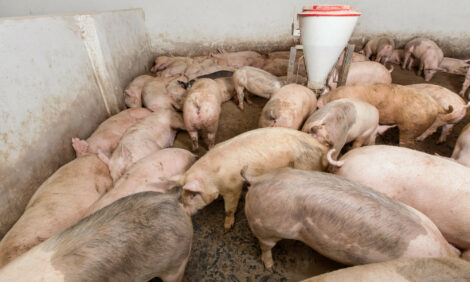



Sero-epidemiologic Study of Reston Ebolavirus in Swine in the Philippines
Seventy per cent of pigs sampled from farms infected with the Reston ebolavirus in two regions of the Philippines in 2008 were positive for REBOV antibodies, according to new research, indicating that pigs are susceptible to infection by this virus.In a paper published recently in BMC Veterinary Research, Yusuke Sayama of Japan’s National Institute of Infectious Diseases and co-authors there and at Tohoku University Graduate School of Medicine as well as contributors in the Philippines – Tohoku-RITM Collaborating Research Center for Emerging and Reemerging in Muntinlupa City, Research Institute for Tropical Medicine and the Bureau of Animal Industry in Quezon City explain that Ebola viruses cause viral haemorrhagic fever in humans and non-human primates and are endemic in Africa. Reston ebolavirus (REBOV) has caused several epizootics in cynomolgus monkeys (Macaca fascicularis) but is not associated with any human disease. In late 2008, REBOV infections were identified in swine for the first time in the Philippines.
A total of 215 swine sera collected at two REBOV-affected farms in 2008, in Pangasinan and Bulacan, were tested for the presence of REBOV-specific antibodies using multiple serodiagnosis systems. A total of 98 swine sera collected in a non-epizootic region, Tarlac, were also tested to clarify the prevalence of REBOV infection in the general swine population in the Philippines.
Some 70 per cent of swine sera at the affected farms were positive for REBOV antibodies in the multiple serodiagnosis systems. On the other hand, none of the swine sera collected in Tarlac showed positive reactions in any of the diagnosis systems.
Sayama and co-authors conclude that the high prevalence of REBOV infection in swine on the affected farms in 2008 suggests that swine are susceptible for REBOV infection. They add that the multiple serological assays used in the study may be useful for future surveillance of REOBV infection in swine in the Philippines.
Reference
Sayama Y., C. Demetria, M. Saito, R.R. Azul, S. Taniguchi, S. Fukushi, T. Yoshikawa, I. Iizuka, T. Mizutani, I. Kurane, F.F. Malbas, S. Lupisan, D.P. Catbagan, S.B. Animas, R.G. Morales, E.L. Lopez, K.R.C. Dazo, M.S. Cruz, R. Olveda, M. Saijo, H. Oshitani and S. Morikawa. 2012. A seroepidemiologic study of Reston ebolavirus in swine in the Philippines. BMC Veterinary Research, 8:82. doi:10.1186/1746-6148-8-82
Further ReadingYou can view the full report (as a provisional PDF) by clicking here. |
July 2012








